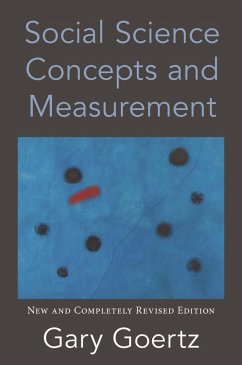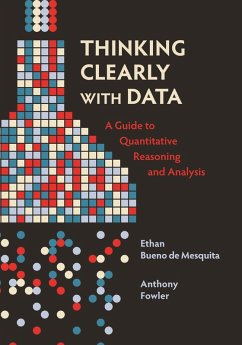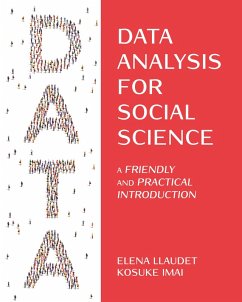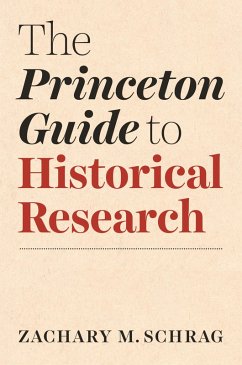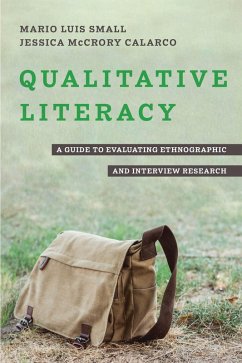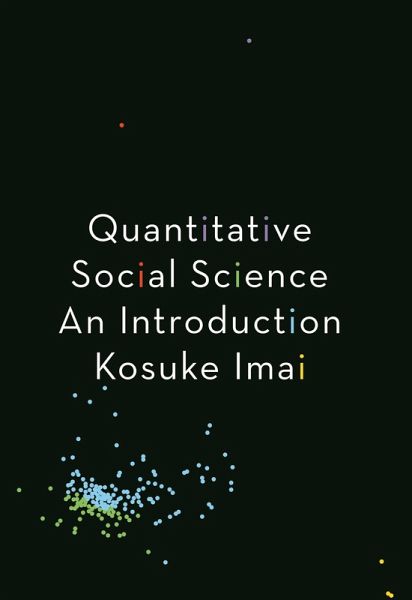
Quantitative Social Science (eBook, ePUB)
An Introduction
Versandkostenfrei!
Sofort per Download lieferbar
41,95 €
inkl. MwSt.
Weitere Ausgaben:

PAYBACK Punkte
21 °P sammeln!
An introductory textbook on data analysis and statistics written especially for students in the social sciences and allied fieldsQuantitative analysis is an increasingly essential skill for social science research, yet students in the social sciences and related areas typically receive little training in it-or if they do, they usually end up in statistics classes that offer few insights into their field. This textbook is a practical introduction to data analysis and statistics written especially for undergraduates and beginning graduate students in the social sciences and allied fields, such a...
An introductory textbook on data analysis and statistics written especially for students in the social sciences and allied fields
Quantitative analysis is an increasingly essential skill for social science research, yet students in the social sciences and related areas typically receive little training in it-or if they do, they usually end up in statistics classes that offer few insights into their field. This textbook is a practical introduction to data analysis and statistics written especially for undergraduates and beginning graduate students in the social sciences and allied fields, such as economics, sociology, public policy, and data science.
Quantitative Social Science engages directly with empirical analysis, showing students how to analyze data using the R programming language and to interpret the results-it encourages hands-on learning, not paper-and-pencil statistics. More than forty data sets taken directly from leading quantitative social science research illustrate how data analysis can be used to answer important questions about society and human behavior.
Proven in the classroom, this one-of-a-kind textbook features numerous additional data analysis exercises and interactive R programming exercises, and also comes with supplementary teaching materials for instructors.
Looking for a more accessible introduction? Consider Data Analysis for Social Science by Elena Llaudet and Kosuke Imai, which teaches from scratch and step-by-step the fundamentals of survey research, predictive models, and causal inference. It covers descriptive statistics, the difference-in-means estimator, simple linear regression, and multiple linear regression.
Quantitative analysis is an increasingly essential skill for social science research, yet students in the social sciences and related areas typically receive little training in it-or if they do, they usually end up in statistics classes that offer few insights into their field. This textbook is a practical introduction to data analysis and statistics written especially for undergraduates and beginning graduate students in the social sciences and allied fields, such as economics, sociology, public policy, and data science.
Quantitative Social Science engages directly with empirical analysis, showing students how to analyze data using the R programming language and to interpret the results-it encourages hands-on learning, not paper-and-pencil statistics. More than forty data sets taken directly from leading quantitative social science research illustrate how data analysis can be used to answer important questions about society and human behavior.
Proven in the classroom, this one-of-a-kind textbook features numerous additional data analysis exercises and interactive R programming exercises, and also comes with supplementary teaching materials for instructors.
- Written especially for students in the social sciences and allied fields, including economics, sociology, public policy, and data science
- Provides hands-on instruction using R programming, not paper-and-pencil statistics
- Includes more than forty data sets from actual research for students to test their skills on
- Covers data analysis concepts such as causality, measurement, and prediction, as well as probability and statistical tools
- Features a wealth of supplementary exercises, including additional data analysis exercises and interactive programming exercises
- Offers a solid foundation for further study
- Comes with additional course materials online, including notes, sample code, exercises and problem sets with solutions, and lecture slides
Looking for a more accessible introduction? Consider Data Analysis for Social Science by Elena Llaudet and Kosuke Imai, which teaches from scratch and step-by-step the fundamentals of survey research, predictive models, and causal inference. It covers descriptive statistics, the difference-in-means estimator, simple linear regression, and multiple linear regression.
Dieser Download kann aus rechtlichen Gründen nur mit Rechnungsadresse in A, D ausgeliefert werden.









